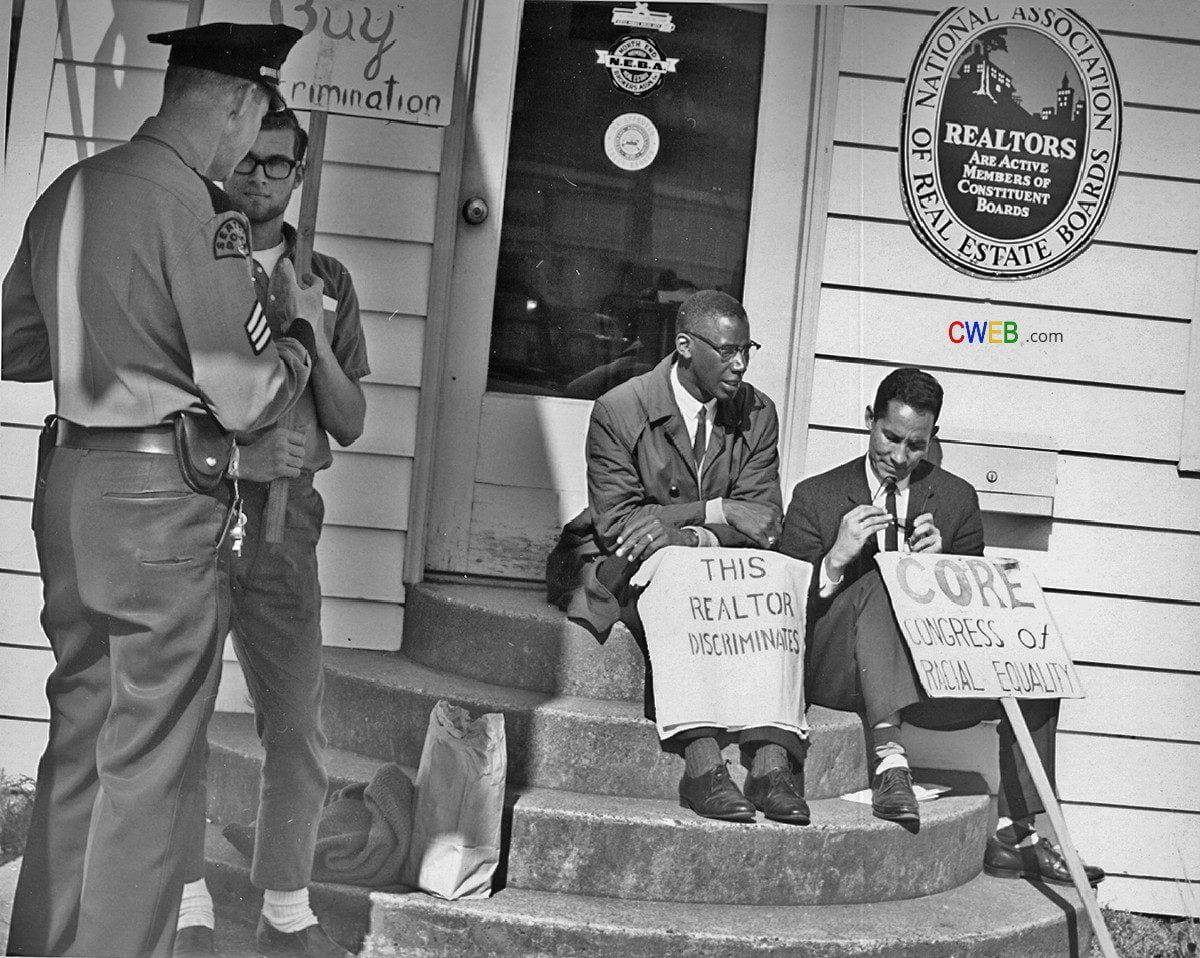Housing discrimination thrives 50 years after Fair Housing Act tried to end it – CWEB.com
Jmabel/Wikimedia Commons, CC BY-NC-ND
Prentiss A. Dantzler, Colorado College
In the midst of riots in 1968 after civil rights leader Martin Luther King Jr. was slain, President Lyndon B. Johnson signed the Fair Housing Act.
The federal legislation addressed one of the bitterest aspects of racism in the U.S.: segregated housing. It prohibited discrimination on the basis of race, color, religion and national origin when selling and renting housing.
The Department of Housing and Urban Development, or HUD, has administered the act with some success. From 1970 to 2010, the share of African-Americans living in highly segregated neighborhoods declined by half. But in areas that remained highly segregated in 2010, there were no signs of improvement. In several cities, such as Baltimore and Philadelphia, average levels of segregation had actually increased.
My scholarship on public housing and residential mobility demonstrates that where African-American people live is often still limited by discrimination.
Meanwhile, HUD — the department charged with ending housing discrimination — has shifted much of its focus away from that core mission to instead promote economic self-sufficiency.
The effect of this change could mean the discrimination that continues to exist will remain, and people of color will continue to have limited options for housing, attend lower-performing schools and experience poorer health outcomes.
Refocusing HUD’s mission
The Fair Housing Act’s dual mission was to eliminate housing discrimination and to promote residential integration. The communities its authors imagined were desegregated and open to all people.
The first HUD secretary, Robert C. Weaver, believed such places would allow for a diverse mix of people and housing options. This founding tenet is reflected in the mission statement HUD has used since 2010: “HUD’s mission is to create strong, sustainable, inclusive communities and quality affordable homes for all.”
However, HUD’s current secretary, Ben Carson, appointed by President Donald Trump, has proposed a new mission statement. It reads: “HUD’s mission is to ensure Americans have access to fair, affordable housing and opportunities to achieve self-sufficiency, thereby strengthening our communities and our nation.”
One of the key differences between these two mission statements is the goal. While the former focused on building inclusive communities, the new mission focuses on individuals being self-sufficient. This shift reflects an age-old debate about the role of the government in helping poor people secure housing. Recent actions by conservatives suggest they are interested in decreasing government assistance for housing to poor people.
For example, the White House’s fiscal year 2019 budget proposal called for slashing HUD’s funding by US$8.8 billion. Shortly thereafter, HUD Secretary Carson tweeted, “The proposed budget is focused on moving more people toward self-sufficiency through reforming rental assistance programs and moving aging public housing to more sustainable platforms.”
On March 23, in lieu of a government shutdown, Congress passed an omnibus bill that actually added money to HUD’s budget. Yet, there is still a possibility that the White House will rescind some of these increases. Conservatives are still split on whether or not they should go against their deal with liberals to save money. This could drastically change the way HUD operates over the next year.
Diminishing role of government
Such efforts to diminish the government’s role in providing housing assistance to the poorest populations is based on historic ideas on the causes of poverty.
Poverty, some people argue, is caused by an individual’s lack of motivation. Blaming other factors out of their control, according to this line of thinking, is a way of not accepting responsibility. This idea is now being translated into housing policy.
The focus on economic self-sufficiency is not new. Starting in the 1980s, HUD linked housing programs and policies with efforts to increase an individual’s ability to support themselves without government assistance.
Promoting self-sufficiency isn’t a bad idea. Raising the income levels of low-income people is a useful endeavor, since housing is often the largest expense among families.
But here’s the problem with focusing on self-sufficiency: It creates the illusion that where people live is solely their choice. It’s not. The market dictates where people can live, and so does discrimination by landlords and mortgage lenders.
Incomes in the U.S. are not increasing at the same rate as housing costs. And as the economy is bouncing back from the Great Recession, housing is becoming increasingly unaffordable for people at nearly all income levels.
So getting people off of housing assistance, while providing training so they can get higher-paying jobs, does not mean they can find affordable housing in the neighborhood of their choice.
To be effective, housing policies must address, not ignore these challenges. A full return to the spirit with which the Fair Housing Act was passed could be a step in the right direction.
![]() If the Fair Housing Act has taught us anything in the last 50 years, it has highlighted that attaining affordable housing is a problem for many people. Focusing on self-sufficiency and turning a blind eye to housing discrimination shifts the focus of housing policy in the United States away from building “inclusive and sustainable communities free from discrimination.”
If the Fair Housing Act has taught us anything in the last 50 years, it has highlighted that attaining affordable housing is a problem for many people. Focusing on self-sufficiency and turning a blind eye to housing discrimination shifts the focus of housing policy in the United States away from building “inclusive and sustainable communities free from discrimination.”
[youtube https://www.youtube.com/watch?v=9TXBP1t2rUc&w=560&h=315]
Prentiss A. Dantzler, Assistant Professor of Sociology and Urban Studies, Colorado College
This article was originally published on The Conversation.

